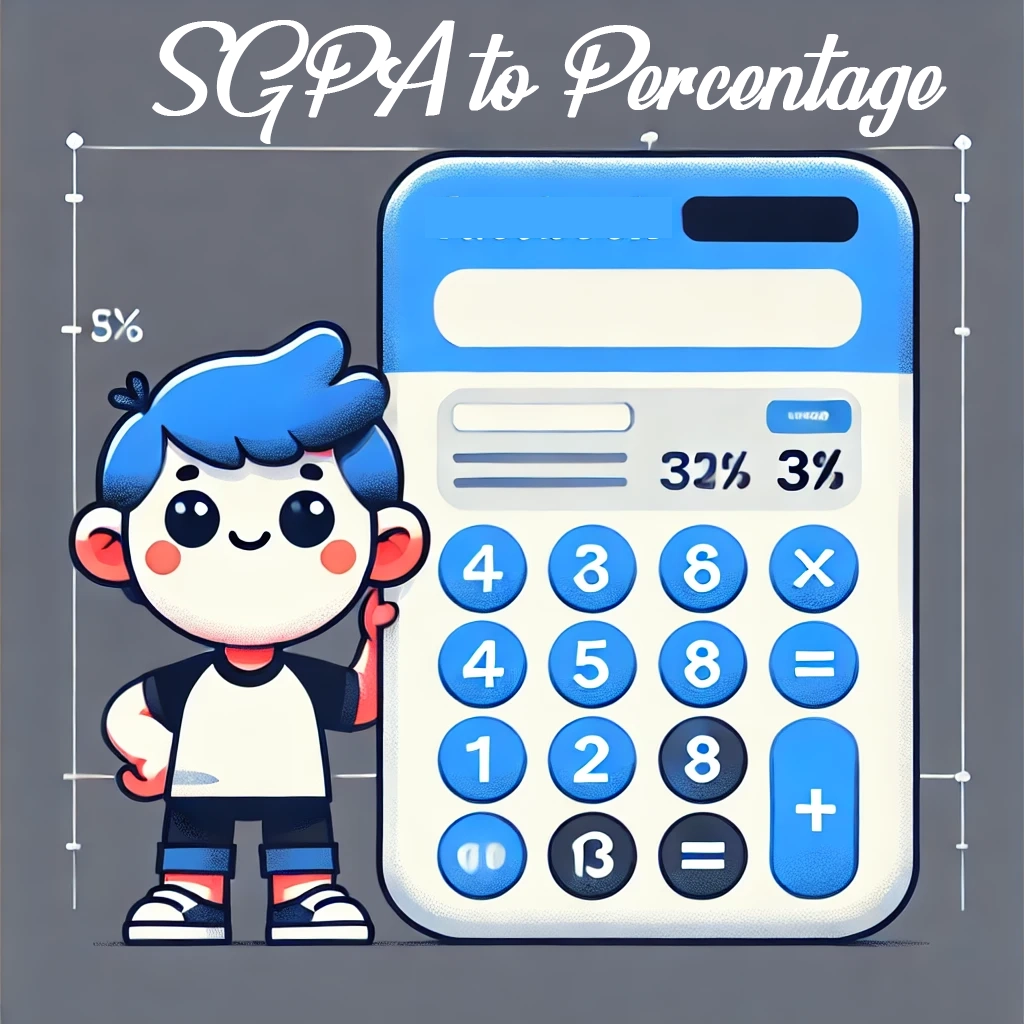SGPA to Percentage Calculator for students

Converting your Semester Grade Point Average (SGPA) to a percentage is a straightforward process that can be essential for academic evaluations, job applications, or further studies. Here's a comprehensive guide to help you understand and perform this conversion accurately.
Understanding SGPA
SGPA, or Semester Grade Point Average, represents a student's academic performance during a specific semester. It's calculated by taking the weighted average of grade points earned in all courses during that term.
SGPA to Percentage Conversion Formula
The widely accepted formula to convert SGPA into a percentage is:
Percentage = (SGPA × 10) – 7.5
Step-by-Step Conversion Process
-
Multiply SGPA by 10:
- For example, if your SGPA is 8.0:
- 8.0 × 10 = 80
- For example, if your SGPA is 8.0:
-
Subtract 7.5 from the result:
- Continuing the example:
- 80 – 7.5 = 72.5
- Continuing the example:
Therefore, an SGPA of 8.0 equates to a percentage of 72.5%.
Example Calculations
-
SGPA: 7.5
- (7.5 × 10) – 7.5 = 67.5%
-
SGPA: 9.2
- (9.2 × 10) – 7.5 = 84.5%
University-Specific Formulas
It's important to note that some universities may use different formulas for this conversion. For instance, Pune University employs the formula:
Percentage = SGPA × 8.8
Always verify with your institution's official guidelines to ensure accurate conversions.
Why Convert SGPA to Percentage?
Converting SGPA to a percentage is often necessary because:
-
Job Applications: Employers may prefer academic scores in percentage format.
-
Higher Education: Some institutions require percentage scores for admissions.
-
Scholarships: Eligibility criteria might be based on percentage thresholds.
SGPA to Percentage Conversion Table
For quick reference, here's a table showcasing common SGPA scores and their percentage equivalents:
| SGPA | Percentage |
|---|---|
| 6.0 | 52.5% |
| 7.0 | 62.5% |
| 8.0 | 72.5% |
| 9.0 | 82.5% |
| 10.0 | 92.5% |
Conclusion
Understanding how to convert SGPA to a percentage is crucial for accurately representing your academic achievements. Always use the standard formula or consult your university's specific guidelines to ensure precision.
- Art
- Causes
- Crafts
- Dance
- Drinks
- Film
- Fitness
- Food
- Games
- Gardening
- Health
- Home
- Literature
- Music
- Networking
- Other
- Party
- Religion
- Shopping
- Sports
- Theater
- Wellness


